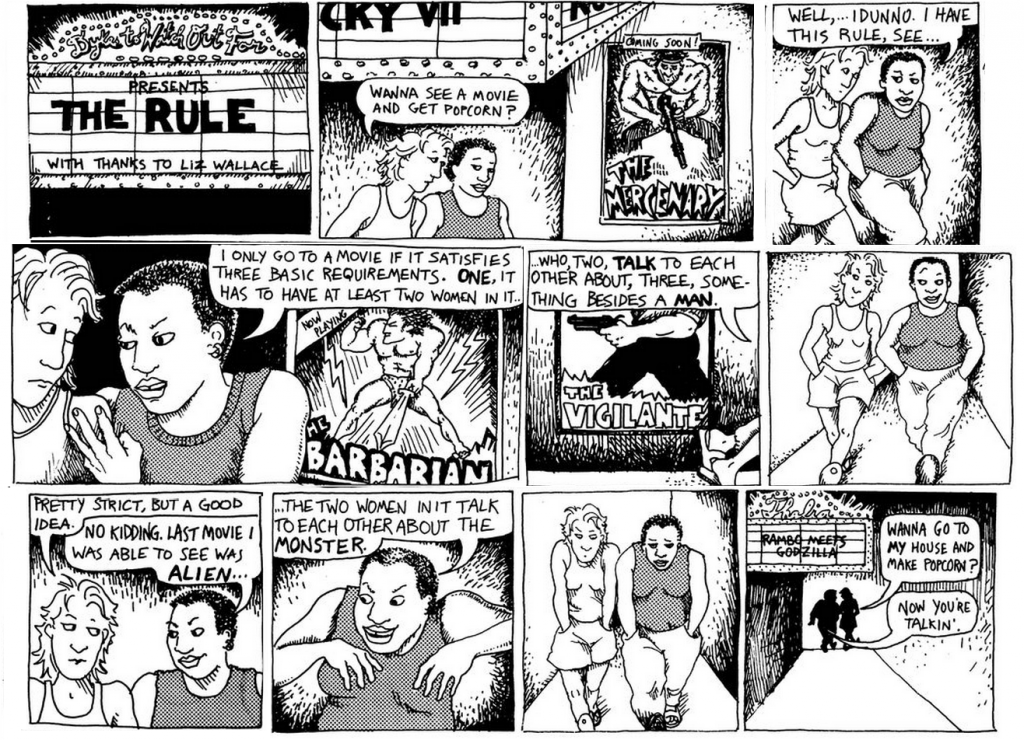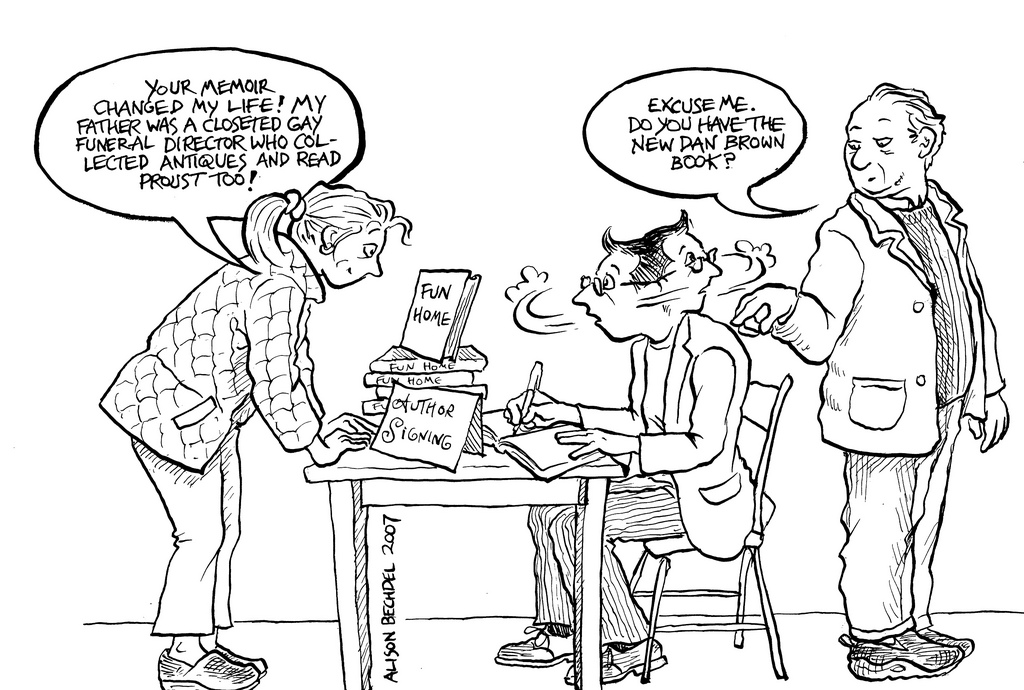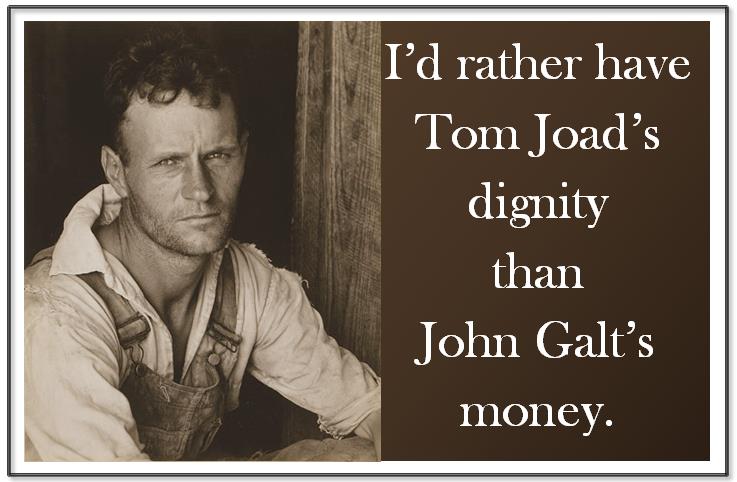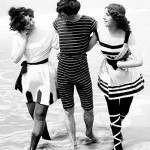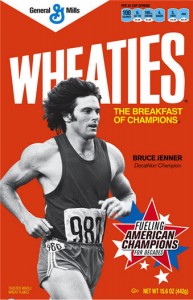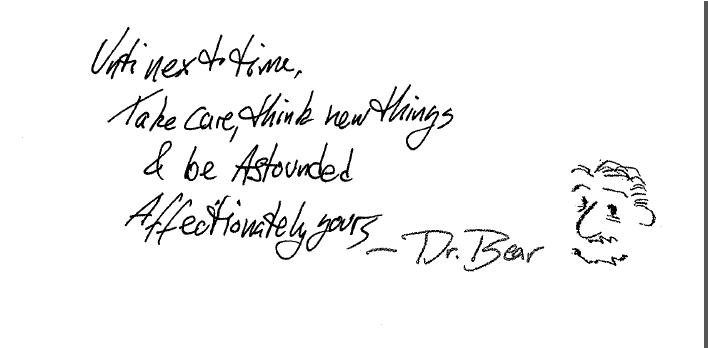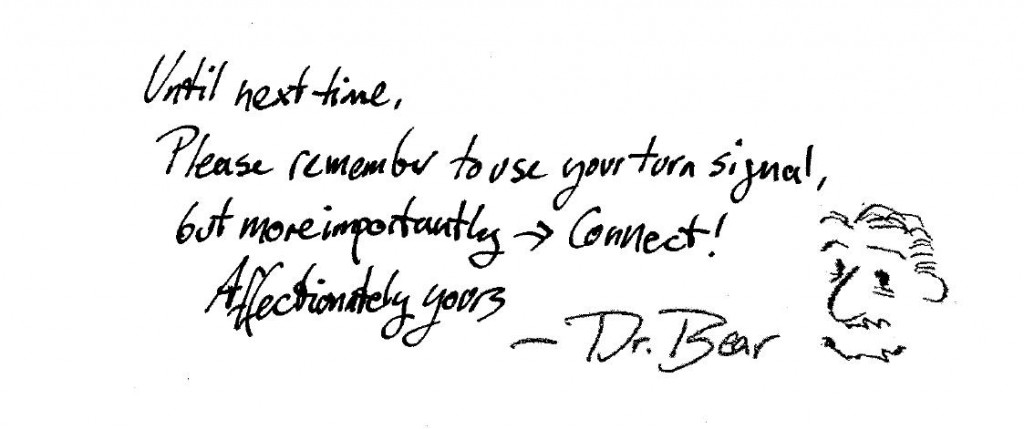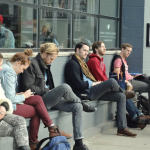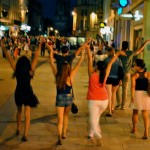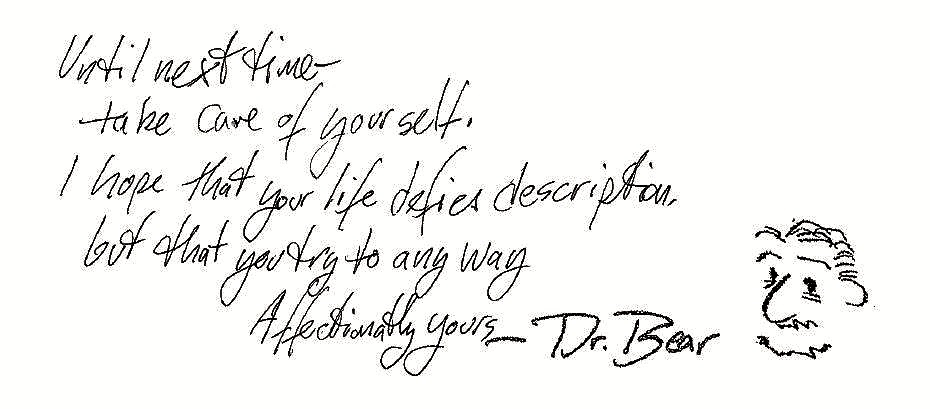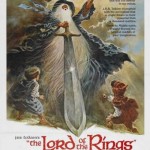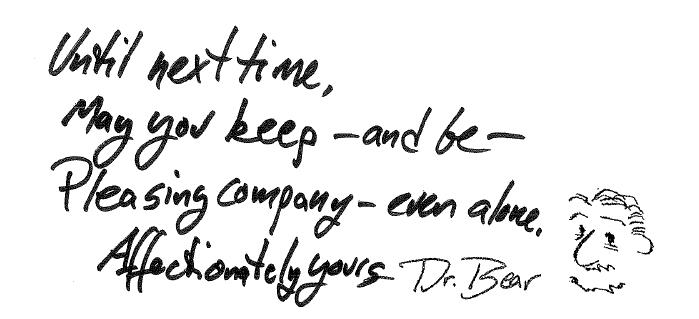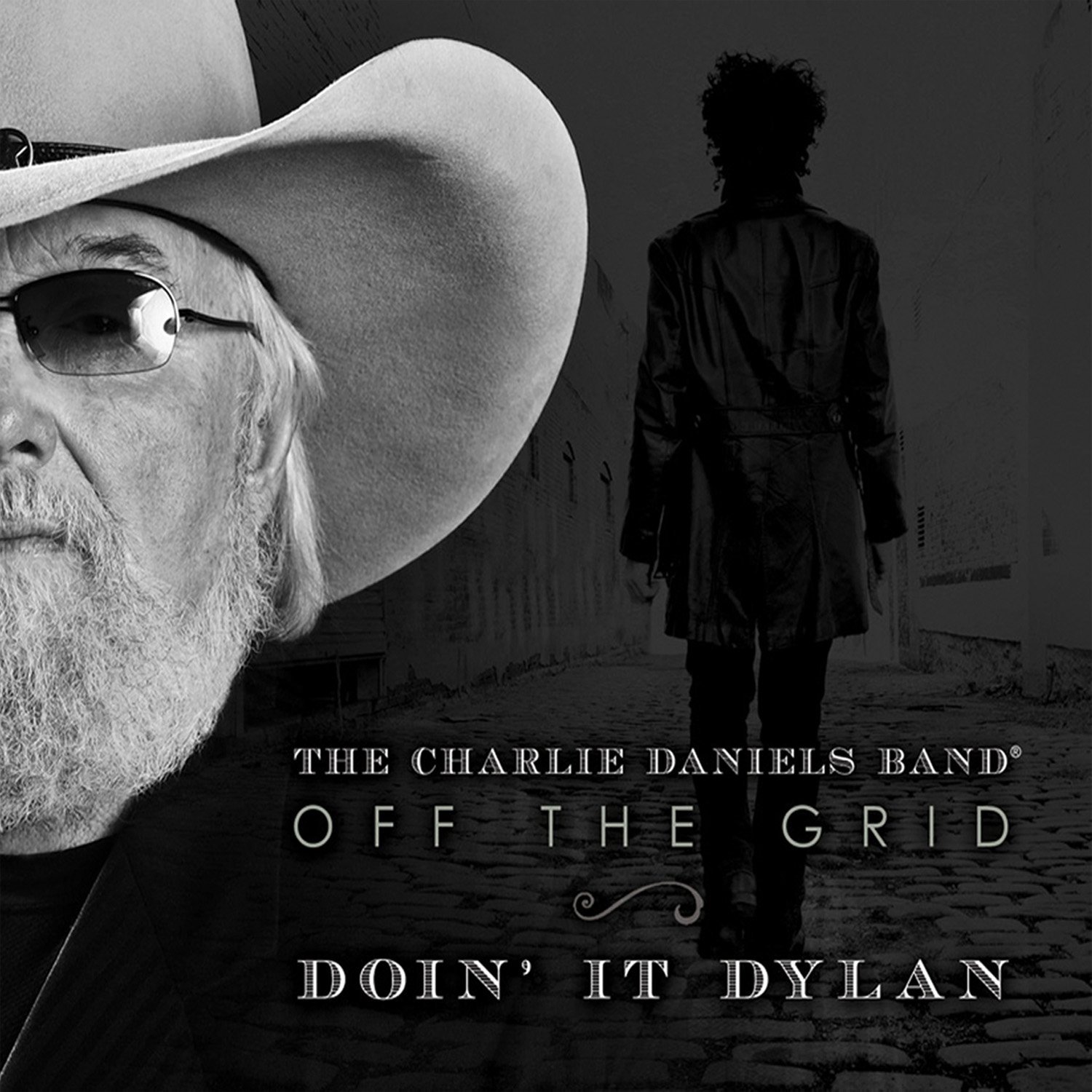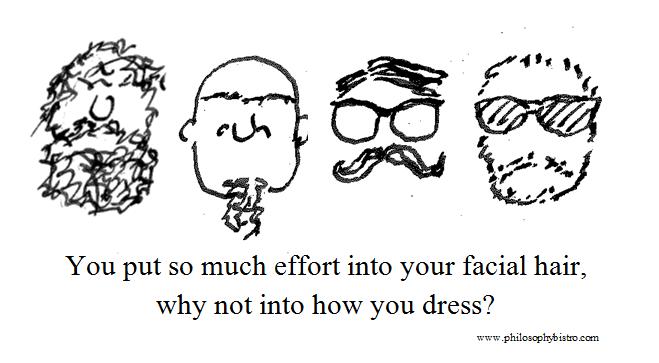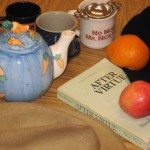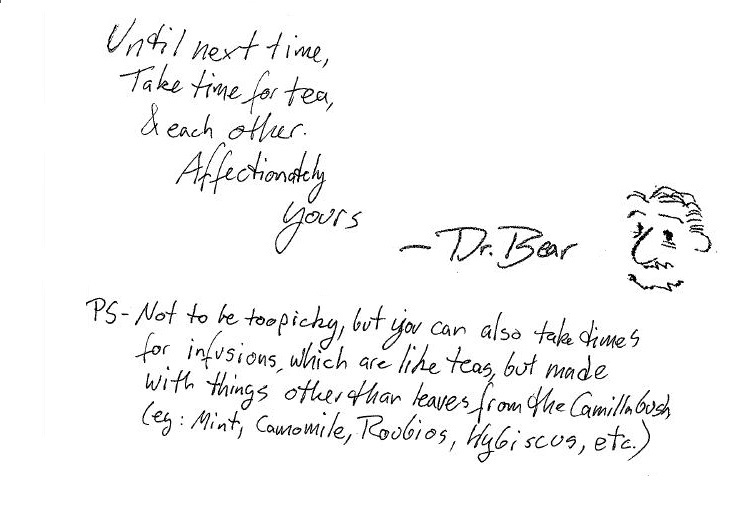Do you remember the feeling of your first library?
To be surrounded by so many books was like suddenly  being allowed into Aladdin’s cave: so many treasures that they seemed limitless. Then as now, I always want to take more than I could possibly read in those two weeks. Then as now, I am drawn to them–even more than I am to bookstores; they are not home, but they are a haven. Although my parents had quite a good library, I was always reading, and always had a few books checked out, as well as a few on my list.
being allowed into Aladdin’s cave: so many treasures that they seemed limitless. Then as now, I always want to take more than I could possibly read in those two weeks. Then as now, I am drawn to them–even more than I am to bookstores; they are not home, but they are a haven. Although my parents had quite a good library, I was always reading, and always had a few books checked out, as well as a few on my list.
I remember taking my own daughter to libraries and us staying there for hours. There was a  stillness and sunshine, but also amazing librarians–helpful, kind, and bookish. At first, Grace came for the excitement of the public story-time, but soon she came for the books. She would lose herself for hours on some beanbag or chair or table. We each felt a magic to walking down the stacks–those rows and rows of shelves, all housing dazzling wonders.
stillness and sunshine, but also amazing librarians–helpful, kind, and bookish. At first, Grace came for the excitement of the public story-time, but soon she came for the books. She would lose herself for hours on some beanbag or chair or table. We each felt a magic to walking down the stacks–those rows and rows of shelves, all housing dazzling wonders. In the book Inkheart, by Cornelia Funke, the bookbinder Mo has told his daughter: “Books have to be heavy because the whole world’s inside them.
In the book Inkheart, by Cornelia Funke, the bookbinder Mo has told his daughter: “Books have to be heavy because the whole world’s inside them.
My whole family has always felt the same way; to walk down those shelves is to travel across multiverses.
One of our great pleasures in Europe was to see that libraries  were still going strong there as well, as we could see when there was a half acre of bicycles parked by one in Munich.
were still going strong there as well, as we could see when there was a half acre of bicycles parked by one in Munich.
Since I have spent 13 years of my life working in bookstores and only a year or so in a library (I was a OCLC monographs cataloguer rather than a librarian who dealt with the public), I do think of myself as more of a bookseller–pirate to the librarians’ ninjas. However, I do adore them, my librarians, and am grateful to them.
Happy National Library Month, you wonderful, lovely, crazy bunch.
The book industry is going through a tremendous upheaval.
Books are certainly not dead, but they are changing, and their role in our lives is changing. Does this mean the end of libraries?
Don’t be silly.
People will always want books, in fact, people will always need books.
One of the great services libraries have provided is that they have brought books to huge numbers of people, many of whom might not  have had any chance of reading them otherwise. Three centuries ago, few houses had more than one or two books, and many had none. Two centuries ago, only the rich had more than a shelf-full. Even a century ago, books were expensive, and many could not afford them, escecially outside of the middle and upper classes. Libraries put books within the reach of almost everyone. Great fiction (or exciting but not so great fiction), could be in anyone’s hands, as could biographies and travelogues of faraway places, science and engineering books, huge dictionaries and medical encyclopedia, as well as things like atlases and maps. President Harry S Truman, who had to support his family and was unable to finish school, is said to have educated himself by reading most of the Hannibal, Missouri, Public Library. The steel
have had any chance of reading them otherwise. Three centuries ago, few houses had more than one or two books, and many had none. Two centuries ago, only the rich had more than a shelf-full. Even a century ago, books were expensive, and many could not afford them, escecially outside of the middle and upper classes. Libraries put books within the reach of almost everyone. Great fiction (or exciting but not so great fiction), could be in anyone’s hands, as could biographies and travelogues of faraway places, science and engineering books, huge dictionaries and medical encyclopedia, as well as things like atlases and maps. President Harry S Truman, who had to support his family and was unable to finish school, is said to have educated himself by reading most of the Hannibal, Missouri, Public Library. The steel  magnate Andrew Carnegie endowed 2,509 libraries–including another one of my libraries, the public Library in Lincoln, Illinois)–in part because he felt they provided an opportunity for the “working man” to better himself. For years, they were a place anybody could learn, as well as an important public space in most American communities.
magnate Andrew Carnegie endowed 2,509 libraries–including another one of my libraries, the public Library in Lincoln, Illinois)–in part because he felt they provided an opportunity for the “working man” to better himself. For years, they were a place anybody could learn, as well as an important public space in most American communities.
This continues.
 This continues in large part because of the way libraries and librarians have approached the problem. They are adapting–not always perfectly, not always smoothly, but they are adapting. The see what the new needs are, and work to meet them where they are. Precisely those things that are changing the world of books are making libraries more important.
This continues in large part because of the way libraries and librarians have approached the problem. They are adapting–not always perfectly, not always smoothly, but they are adapting. The see what the new needs are, and work to meet them where they are. Precisely those things that are changing the world of books are making libraries more important.
It makes me furious when I hear someone describe the internet and e-books as accessible or convenient or free.
They are not.
Neither are they democratic.
Nothing that requires a hundred dollar piece of equipment–and most nooks, kindles, smartphones, etc. are more than that, while genuine laptops and iPhones or iPads can be much, much more–is free. Nothing that requires a service contract to provide internet access, WiFi or data packages is free.
In addition to this, nothing that costs this much is convenient or accessible for citizens of modest means (“Oh honey, mine aren’t just modest; they’re downright meek–shy to the point of agoraphobic”). These folks, who are becoming more and more common in this “New Normal,” are still finding resources at their local public libraries (since students in higher education are also of timid means, these necessary resources continue to be offered to them–even fought for–by college and university libraries).
or accessible for citizens of modest means (“Oh honey, mine aren’t just modest; they’re downright meek–shy to the point of agoraphobic”). These folks, who are becoming more and more common in this “New Normal,” are still finding resources at their local public libraries (since students in higher education are also of timid means, these necessary resources continue to be offered to them–even fought for–by college and university libraries).
I am not talking about the homeless–although the book gods know how much they use the libraries–I am talking about hard-working people trying to carve out a decent life by holding down 2 or 3 part-time jobs.
In addition to still providing books, an amazing way that libraries have adapted is to provided computer and internet access,  as well as some printing. I chatted with one of my local librarians–4 blocks from the Bistro, and although they don’t keep records of use, their 30+ terminals are all in use several times each day, often with people waiting.
as well as some printing. I chatted with one of my local librarians–4 blocks from the Bistro, and although they don’t keep records of use, their 30+ terminals are all in use several times each day, often with people waiting.
This is important.
All those government websites that make information “more” available require internet access. Many of those applications for Medicare or Veterans’ benefits require internet access. Most job applications are now made “easier” by requiring internet access. In an age of “instant” communication, that communication is only accessible to those with internet access.
Public libraries provide that, not just to the margins of our society, but to its foundation, as well as to the foundation of our future.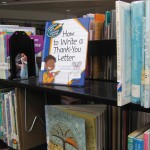
Libraries have also stepped into the electronic world by lending e-books and freegal, making those more accessible to folks with computers and e-readers, especially to those who cannot make the trip to the library–due to lack of mobility or of transportation.
Of course, all of us–those of modest means, those of the crunched middle means, and even those of comfortable means–can still take our children, our nieces and nephews, or grandchildren to wander down those magic aisles curiously–looking to be fed on words.
Celebrate National Library Month, and hug a librarian.
On second thought, they are book-people; thank them from a distance of at least 3 feet.
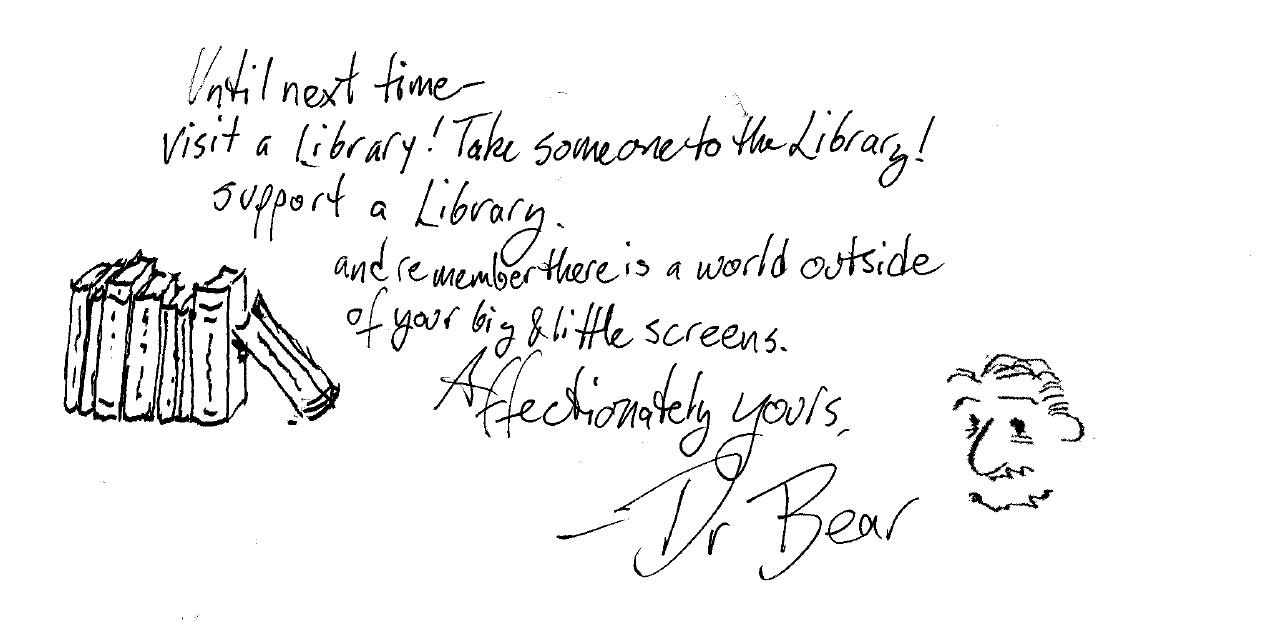
Like this:
Like Loading...

